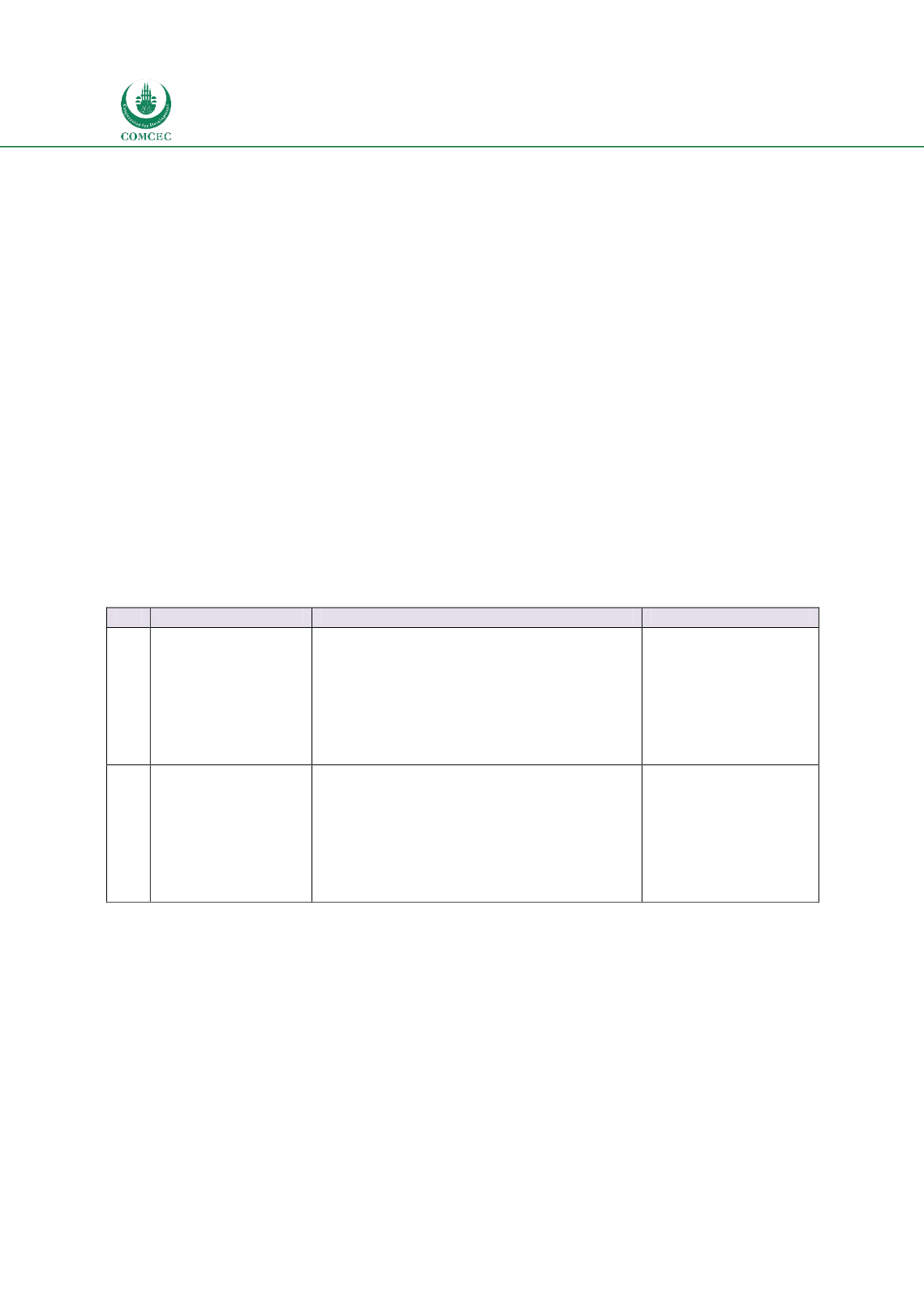

National and Global Islamic Financial Architecture:
Problems and Possible Solutions for the OIC Member Countries
210
As civil courts in most of the OIC MCs use national laws to adjudicate disputes, there is a need
to have some arrangements where the Islamic financial contacts can be examined according to
the principles of Islamic law. This can be done by either having a separate Shariah bench
within the civil courts or referring the Shariah issues to an external Shariah board or authority
for advice. Alternatively, arbitration centers that use Islamic law to adjudicate cases can be
used for disputes arising in the Islamic financial sector. Finally an Islamic bankruptcy legal
framework that can deal with insolvencies and resolutions involving the Islamic financial
sector is needed to mitigate legal risks.
7.1.2. Regulations and Supervision
As the introduction of Shariah principles changes the nature risks and return of Islamic
financial transactions compared to their conventional counterparts, the regulatory treatment
of the former would be different compared to the latter. As such, there is a need to come up
with a relevant regulatory framework for the Islamic financial sector. In this regard, the
regulatory standards developed by IFSB will be relevant. As the Islamic financial sector
becomes larger, there should be separate regulatory departments/units to deal with the issues
arising in different Islamic financial sectors. To mitigate regulatory arbitrage, the licensing and
regulatory requirements of conventional and Islamic banks should be clearly defined and
applied.
Table
7.2: Regulations and Supervision
No. Recommendations Specific Steps
Implemented by
2.1
Adopt Islamic
financial regulations
Adopt regulatory framework for Islamic
banks in line with IFSB standards
Adopt regulatory framework for Takaful
in line with IFSB standards
Adopt regulatory framework for Islamic
capital markets in line with IFSB
standards
Banking sector
regulator
Insurance/Takaful
sector regulator
Capital markets
regulator
2.2
Separate regulatory
department dealing
with Islamic finance
Establish separate regulatory
department dealing with Islamic banks
Establish separate regulatory
department dealing with Takaful
Establish separate regulatory
department dealing with Islamic capital
markets
Banking sector
regulator
Insurance/Takaful
sector regulator
Capital markets
regulator
7.1.3.
Shariah
Governance Framework
As Shariah compliance is the key distinguishing feature of Islamic finance, there is a need to
have a Shariah governance framework to ensure that the products and operations of Islamic
financial institutions do not contradict the principles of the Shariah. One of the key elements of
ensuring a sound Shariah governance framework is to make it a legal/regulatory requirement.
This can be done either by adding the requirement of Shariah governance at the financial
institution level in Islamic financial laws or in regulations. The regulators can come up with
specific Shariah governance guidelines that banks are required to follow. Among others, this
should include the requirement of Shariah audit to ensure that all the operations of financial
institutions are in compliance with Shariah.
















